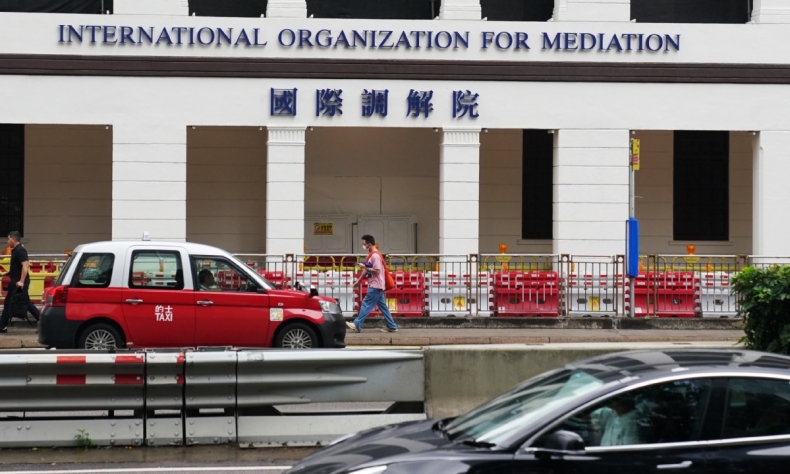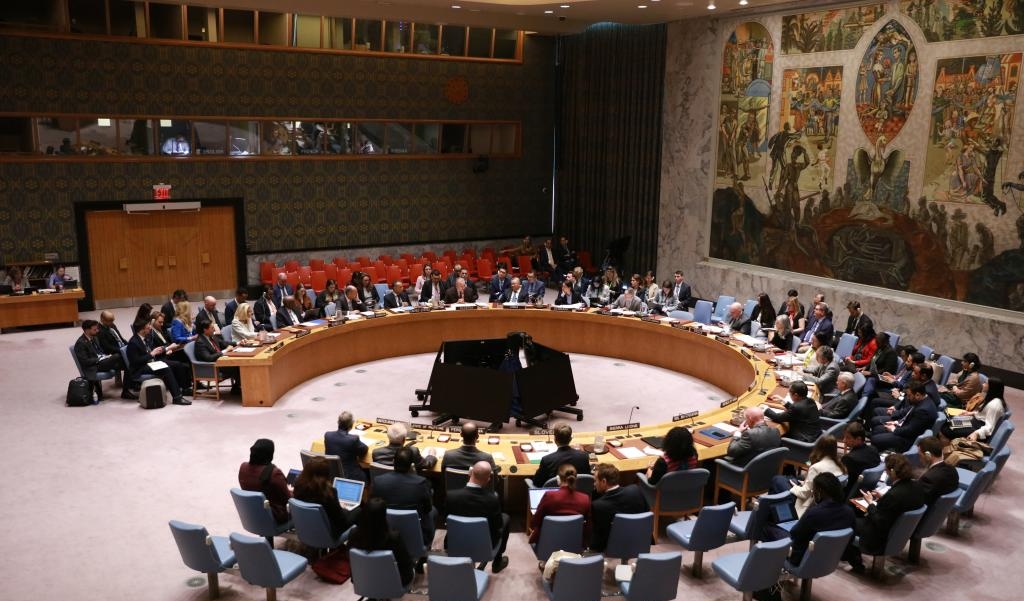Healing a Fractured International System

The establishment of the IOMed provides developing nations with a new platform to participate in shaping international rules, helping steer global governance toward greater fairness, rationality and effectiveness.
The International Organization for Mediation (IOMed), the world’s first intergovernmental legal organization dedicated to the settlement of international disputes through mediation, was established in Hong Kong Special Administrative Region on May 30. First proposed in 2022 by China along with 19 other countries, the organization has drawn broad initial support and participation, with representatives of nearly 60 countries from across Asia, Africa, Latin America and Europe, along with about 20 international organizations, including the United Nations, attending the signing ceremony of the Convention on the Establishment of the International Organization for Mediation.
According to China’s Ministry of Foreign Affairs, the IOMed is a key mechanism designed to promote the peaceful resolution of international disputes through mediation, as enshrined in the UN Charter. It presents a new option for peacefully settling international disputes and achieving win-win cooperation among nations.
Against the backdrop of unilateralism and protectionism severely undermining the international order, the establishment of the IOMed responds to the shared concerns of the global community regarding peace, stability and development. And it will promote fairer and more equitable global governance.
A new approach needed
Following the outbreak of the Russia-Ukraine and Israeli-Palestinian conflicts, the UN Security Council has repeatedly been paralyzed by major-power politics, such as the U.S. frequent abuse of its veto power to shield Israel’s military actions in Gaza from effective restraint.
Similarly, the International Criminal Court (ICC), tainted by political bias, has issued an arrest warrant for Russian President Vladimir Putin on charges of war crimes. It also investigated and detained former Philippine President Rodrigo Duterte, yet is turning a blind eye to documented atrocities by U.S. forces in Afghanistan.
Moreover, the World Trade Organization’s dispute settlement mechanism has been dysfunctional since 2019 due to U.S. obstruction of appellate judge appointments, leaving 30 rulings in limbo without the possibility of appeal. These cases highlight the severe limitations of existing international dispute resolution mechanisms, underscoring the urgent need for a fresh new approach.

The world is undergoing transformation unseen in a century, with economic globalization facing headwinds, protectionism and unilateralism on the rise, and profound shifts in the global economic, technological, cultural, security and political landscapes. As nations grapple with escalating disputes and conflicts, there is a growing demand for more effective mechanisms to uphold peace and stability. Mediation, as a peaceful, flexible and cooperative means of conflict resolution, is gaining increasing recognition and importance, as the demand for peacefully resolving conflicts grows even stronger across the international community.
As developing countries enhance their crisis response and global governance capabilities, and engage more actively in international affairs, the Western-dominated governance system has become increasingly inadequate in meeting the demands of the times. The global governance framework urgently needs innovation at the institutional level.
The establishment of the IOMed is a timely response to these challenges. It provides developing nations with a new platform to participate in shaping international rules, helping steer global governance toward greater fairness, rationality and effectiveness.
Can it help?
The wide participation of countries and international organizations in the IOMed is a sign of their endorsement of this new diplomatic and cooperative framework. As an alternative to traditional judicial and arbitration mechanisms, the IOMed challenges the U.S.-centric global order by emphasizing dialogue and mediation over unilateral sanctions or military coercion—a stark contrast to Washington’s confrontational tactics. It helps lessen international tensions and provides opportunities to repair strained relationships within the global order.
In resolving disputes, the organization will adhere to international law and relevant global regulations, upholding objectivity and neutrality while maintaining fairness, justice and transparency. This will avoid issues such as power politics and double standards often seen in U.S.-led interventions, thereby fostering trust and recognition across the international community. By attracting broader participation, it shall contribute to reshaping the global system.
The very creation of the IOMed—a product of multilateral cooperation—demonstrates a global consensus on peaceful dispute resolution and reform of the current system. By fostering further dialogue and pooling collective strength, it will offer a new pathway to address global challenges and advance a more just and equitable international order.

Considering all these factors, the new organization has the potential to partially restore the international order disrupted by the U.S.
Despite its promise, the IOMed will still face major challenges. As the U.S. remains a pivotal force in the current system, it has refrained from participating in the organization’s establishment or signing relevant agreements. And its considerable influence in international economic, political and military domains may weaken the IOMed’s effectiveness in its future operations.
China: a staunch defender
Since 2022, China has spearheaded the organization’s establishment, transforming the initiative from concept to reality. As a permanent member of the UN Security Council, China is a staunch defender of the international order based on the principles and objectives of the UN Charter—and the establishment of the IOMed aligns with China’s commitment to implementing the charter’s provisions.
China is also a firm supporter of the multilateral trading system. Since joining the WTO in 2001, the country has adhered to its rules, promoting the healthy development of the multilateral trading framework. Through fulfilling WTO obligations, expanding its market access, and fostering global trade growth, China has injected robust momentum into global economy. Pursuing an independent foreign policy of peace, China advocates resolving international disputes through dialogue and negotiation, opposing the use or threat of force. In global affairs, it consistently strives to mediate and facilitate political solutions to pressing issues.
China’s vision of global governance, which was proposed in 2017, featuring extensive consultation, joint contribution and shared benefit, has garnered increasing recognition and support from nations, offering fresh perspectives and solutions to global challenges.
In the future, the IOMed will drive the diversification of international dispute resolution mechanisms, further refine and enforce international law, and provide stronger legal support for maintaining the stability of the global order. It will also empower developing countries with greater influence and voice in international affairs, challenging the longstanding dominance of Western nations in dispute resolution and fostering the democratization of international relations.
 Facebook
Facebook
 Twitter
Twitter
 Linkedin
Linkedin
 Google +
Google +










